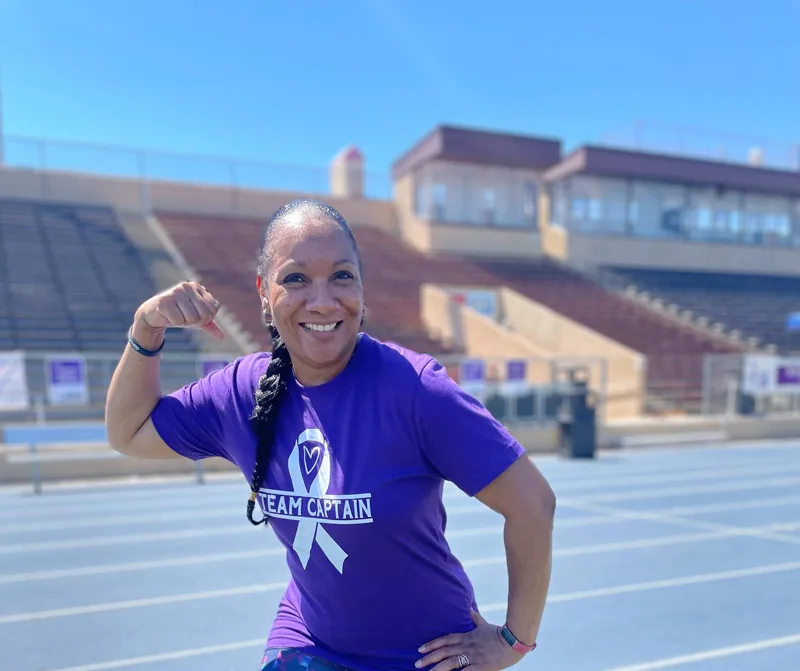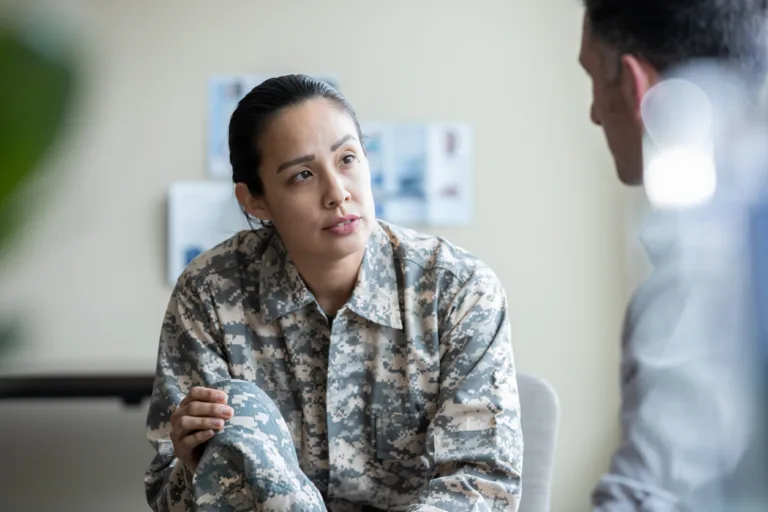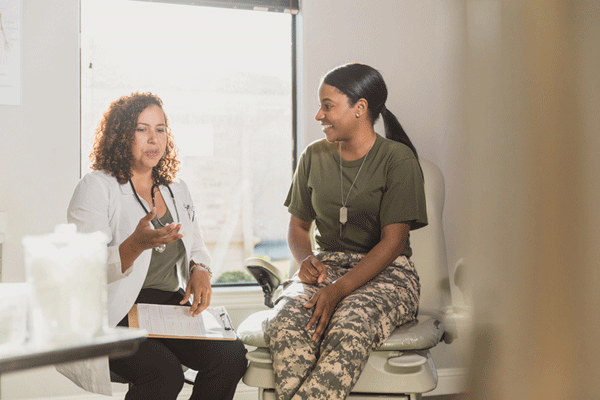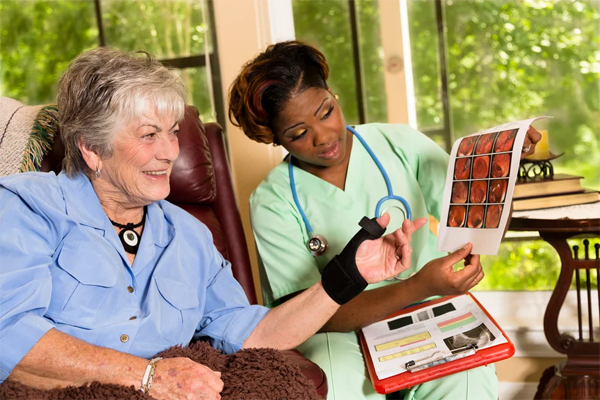As told to Nicole Audrey Spector
In the military, you have to stay healthy. They’re constantly making sure you’re in tip-top shape, checking your vital signs and running blood work regularly.
I was serving as a reservist. I did the job, gladly and with pride, for eight years. To my knowledge, I was always in perfect health. Looking back, I recognize that I did have one concerning symptom: I didn’t have regular bowel movements. Sometimes I would go as long as two or even three days without one. This went on for years. I didn’t think much of it at the time, but later, this would surface as a missed red flag.
In 2011, I decided not to renew my contract with the military. I opted not to reenlist, not because I didn’t love my job or what it empowered me to do (get on my feet as a single mom, go back to school and get a degree, buy a house, etc.), but because I needed some time for myself to recharge and replenish. I’d just lost my husband to pancreatic cancer and had been his primary caregiver throughout that painful journey.
The following year, I went to my medical provider for a routine exam. I was 44 years old, and though I had no symptoms that I knew of (I was still unaware that my irregular bowel movements were a symptom), my doctor wanted me to take a fecal immunochemical test (FIT). This is a test that is used to detect blood in stool and is one way to screen for colorectal cancer.
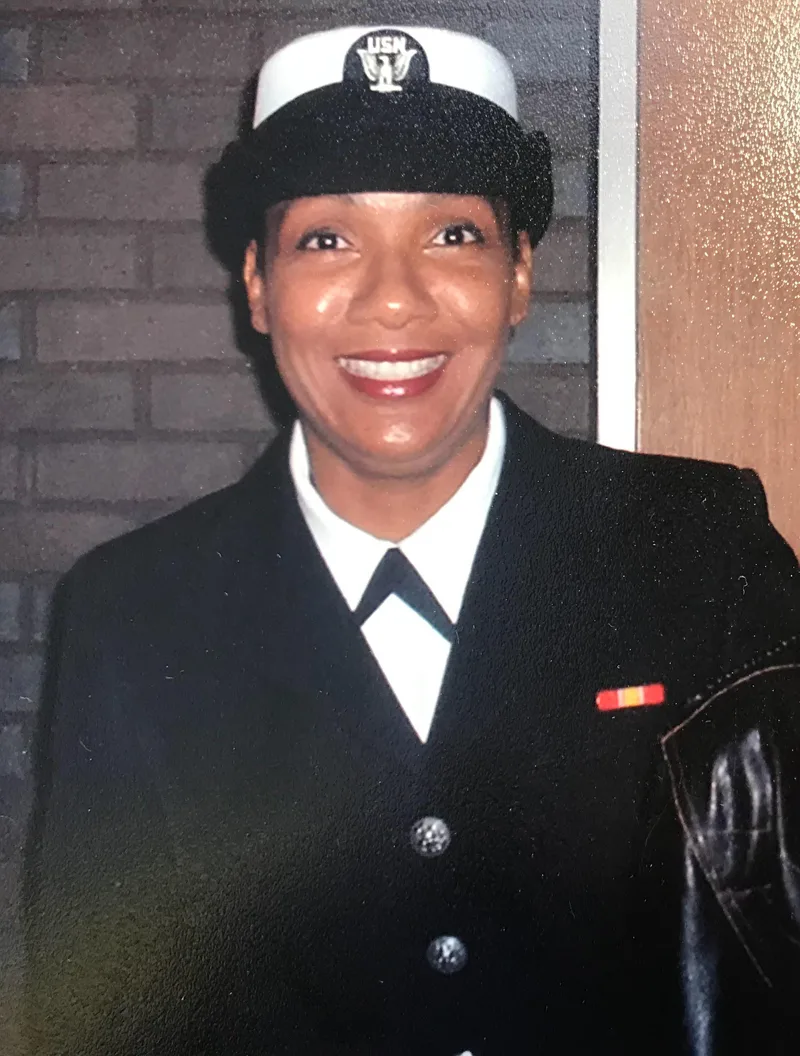
I agreed to take the test home with me, but I thought I had nothing to worry about and let the test sit on my toilet for two weeks. It wasn’t until a nurse practitioner from my doctor’s office called me to ask about the status of the test that I felt like I had to take it. Had I ignored her, you likely wouldn’t be hearing from me today.
The FIT came back positive for abnormalities. The next step was to have a colonoscopy, which revealed horrible news: I had colorectal cancer. Stage 3.
What bothered me the most about my diagnosis was that the oncologist believed I’d had the cancer for a long time — around 15 years. How had I gone that long without knowing that something as terrible as cancer was inside my body? It was shocking, and I couldn’t help but wonder how this had been missed after all those years of blood work and physical exams.
Fortunately the first plan of attack — chemotherapy — ended up being the right one. The chemo zapped the cancer out of me, and six months after treatment, I was cancer-free and remained so for about four years.
During my remission, I mentioned to my oncologist that my grandfather passed away from colorectal cancer when he was just 38 years old. She recommended that I get a genetic test to rule out Lynch syndrome, a genetic condition that causes various cancers, including colon cancer, endometrial cancer, skin cancer and others.
I resisted a bit, but my doctor insisted. So, in 2016, I got the genetic test and it came back positive for Lynch syndrome. Additionally, it revealed that I had up to an 8 in 10 chance of getting endometrial cancer. It was a lightbulb moment for me. I decided to undergo a full hysterectomy.
And what was discovered upon biopsy of my uterus? Stage 1 endometrial cancer.
Had I not gotten the genetic testing that revealed I had Lynch syndrome, I never would have gotten the full hysterectomy showing I had endometrial cancer.
Just when I thought I was in the clear, cancer struck again. In 2017, I noticed a small pebble-like blemish on my backside. I went to the dermatologist to have it checked out and it turned out to be basal cell carcinoma — 2 inches deep. Luckily, the dermatologist was able to remove the cancer entirely.
Learning that I have Lynch syndrome was groundbreaking for me and led me to reflect on how many other people’s lives may be saved by the discovery. I’ve become deeply involved with patient advocacy groups and strongly encourage people to undergo genetic testing to find out if they have Lynch syndrome.
Genetic testing can be a scary concept, especially for people of color, who have been historically exploited by the medical industry and may have some mistrust toward these types of tests. I don’t blame them, but I also want to assure them that it could save their life.
Living with Lynch syndrome means never letting down your guard. I am on regular surveillance. Every six months I go to my oncologist, dermatologist and gynecologist. And I get a colonoscopy every year.
In many ways I think not so much about “if” cancer will return but “when” cancer will return. But this doesn’t get me down. Not one bit. I’ve been able to do so much as a survivor, and sharing my story and helping others is so therapeutic. Each year, I have a list of projects in my advocacy work, and in 2023, I am already at 30 projects. I’m excited about all the advancements happening in the field around Lynch syndrome, including a new vaccine.
I think of all the scientific discoveries that await us. How will they benefit us? Our children? We have so much hope ahead. And a simple test could be what unlocks it all.


